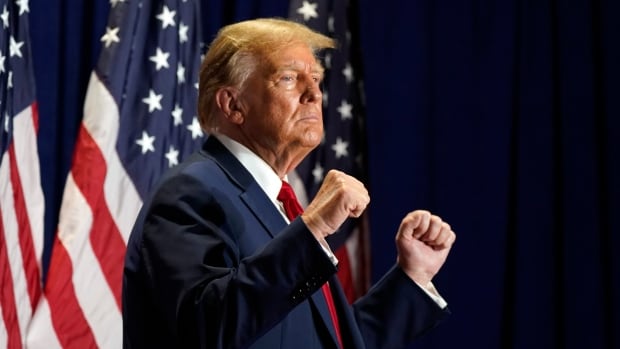The U.S. Supreme Court on Monday restored Donald Trump to this year’s presidential primary ballots, rejecting state attempts to hold the Republican former president accountable for his actions leading to the Jan. 6, 2021 Capitol riot.
The justices unanimously ruled that without action from Congress in D.C. first, states cannot invoke a post-Civil War constitutional provision to keep presidential candidates from appearing on ballots.
Trump also has since been barred from primary ballots in Illinois and Maine, though both decisions, along with Colorado’s, were on hold pending the outcome of the Supreme Court case.
The opinion was handed down in a case involving Trump’s removal from the Colorado primary ballot. It comes a day before Super Tuesday contests in Colorado and 15 other states, where Trump could amass an insurmountable lead over Nikki Haley in Republican delegates in his bid to be the presidential nominee.
Trump’s case was the first at the Supreme Court dealing with a provision of the 14th Amendment that was adopted after the Civil War to prevent former officeholders who “engaged in insurrection” from holding office again.
Colorado’s Supreme Court, in a first-of-its-kind ruling, had decided that the provision, Section 3, could be applied to Trump, whom court found incited the Capitol attack. No court before had applied Section 3 to a presidential candidate.
“To allow Colorado to take a presidential candidate off the ballot under Section 3 would imperil the Framers’ vision of “a Federal Government directly responsible to the people,” the justices wrote.
‘Daunting consequence’: chief justice
Lawyers for Republican and independent voters who sued to remove Trump’s name from the Colorado ballot had argued that there is ample evidence that the events of Jan. 6 constituted an insurrection and that it was incited by Trump, who had exhorted a crowd of his supporters at a rally outside the White House to “fight like hell.” They said it would be absurd to apply Section 3 to everything but the presidency or that Trump is somehow exempt.
Trump’s lawyers mounted several arguments for why the amendment can’t be used to keep him off the ballot. They contended the Jan. 6 riot wasn’t an insurrection and, even if it was, Trump did not go to the Capitol or join the rioters. The wording of the amendment also excludes the presidency and candidates running for president, they said. Even if all those arguments failed, they said, Congress must pass legislation to reinvigorate Section 3.
WATCH l Recapping the arguments in the Colorado case:
The U.S. Supreme Court heard arguments about whether former president Donald Trump is constitutionally ineligible to hold office again after the Colorado Supreme Court voted to remove him from that state’s ballot. Andrew Chang breaks down key arguments from the proceedings.
Conservative Chief Justice John Roberts said if the Colorado decision is upheld, other states will proceed with disqualification proceedings of their own for either Democratic or Republican candidates.
“And it will come down to just a handful of states that are going to decide the presidential election. That’s a pretty daunting consequence,” Roberts said.
The 4-3 Colorado Supreme Court ruling last December reversed a lower court judge’s conclusion that Trump engaged in insurrection by inciting his supporters to violence, but as president, he was not an “officer of the United States” who could be disqualified under the 14th Amendment.
The case is the top court’s most direct involvement in a presidential election for the Supreme Court since Bush v. Gore, a decision delivered a quarter-century ago that effectively handed the 2000 election to Republican George W. Bush.
Read the Court’s decision:


